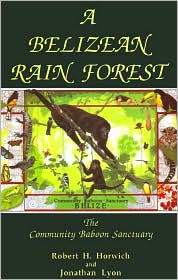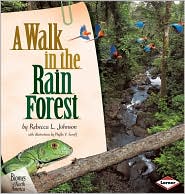USE PALM OIL AND DESTROY RAIN FORESTS
It is listed on my "Bucket List"- to hike through a South American rain forest! Before I leave this earth, I plan on trekking through a thick, green rain forest and listen and see the flora and fauna. I want to hear Howler monkeys screech overhead as they munch on leaves, Antbirds swoop by in search of tasty bugs, and even encounter a jaguar. The next time I'm at "Wally's World" shopping (Wal-Mart), I will refrain from buying products containing palm oil. Let me explain.
 |
| Order online |
 Rain forests are literally bursting with life! Covering just 6% of the earth's surface, rain forests are home to over 60% of all known animal species! But, I received an email from the Union of Concerned Scientists (UCS), asking me to send a letter to Coca-Cola, Wal-Mart, Procter & Gamble, and Kraft Foods asking them to promote the use of deforestation-free palm oil across their industries. It's kind of unsettling when you realize how all interconnected we are with the environment. Yes, I can go to Wal-Mart and purchase dozens of products containing palm oil, and tropical forests are being cleared to make room for palm oil which is leading to large amounts of global warming emissions.
Rain forests are literally bursting with life! Covering just 6% of the earth's surface, rain forests are home to over 60% of all known animal species! But, I received an email from the Union of Concerned Scientists (UCS), asking me to send a letter to Coca-Cola, Wal-Mart, Procter & Gamble, and Kraft Foods asking them to promote the use of deforestation-free palm oil across their industries. It's kind of unsettling when you realize how all interconnected we are with the environment. Yes, I can go to Wal-Mart and purchase dozens of products containing palm oil, and tropical forests are being cleared to make room for palm oil which is leading to large amounts of global warming emissions.
 Yes, every time I purchase baked goods, cleaning products or hair shampoo, I'm leading to the destruction of rain forests.
Yes, every time I purchase baked goods, cleaning products or hair shampoo, I'm leading to the destruction of rain forests.
 |
| Order online |
The demand for palm oil is so high that our planet's tropical forests are being cleared at an alarming rate to make room for new palm oil plantations—and for every acre of trees that are cut down and burned, hundreds of tons of carbon dioxide are released into our atmosphere.
 This deforestation causes about 15 percent of global warming emissions worldwide! And to make matters worse, more than half of all plant and animal species in the world live in those forests. With every acre cleared, those species get even closer to extinction.
This deforestation causes about 15 percent of global warming emissions worldwide! And to make matters worse, more than half of all plant and animal species in the world live in those forests. With every acre cleared, those species get even closer to extinction.
 |
| Order online |
But, according to the UCS message to me, there is a ray of hope! It is possible to grow palm oil without destroying tropical forests. Businesses can grow palm oil on degraded land instead of forested land and existing plantations can increase crop yields to avoid the need to further expand into forests.
In June, the U.S. government announced a new joint initiative with the Consumer Goods Forum—a global network of manufacturers and retailers that includes major corporations such as Wal-Mart and Coca-Cola—to make ingredients, like palm oil, deforestation-free.
I hope I can check-off this one item, someday, on my "Bucket List".
Robert Morton, M.Ed., Ed.S believes urban sprawl can be offset by creating wildlife-friendly spaces in America's 25,000,000 lawns, one yard at a time! Click HERE to learn why. A portion of Ad sale revenues will be donated to Monarch Watch. Do you have a wildlife-friendly space? Please share it by contacting us!




